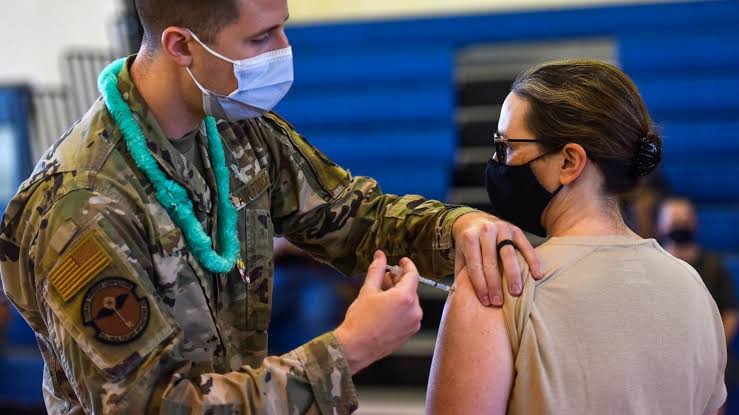According to the Pentagon, almost 40 percent of U.S. Marines have declined to take the Covid-19 vaccine.
Approximately 75,500 Marines have received vaccines, including those now fully vaccinated and partially vaccinated, according to service-wide data obtained by CNN.
However, about 48,000 Marines have chosen not to receive vaccines, giving a declination rate of 38.9%.
“We fully understand that widespread acceptance of the COVID-19 vaccine provides us with the best means to defeat this pandemic. The key to addressing this pandemic is building vaccine confidence,” Marine Corps spokeswoman Col. Kelly Frushour told CNN in a statement.
“The Navy and Marine Corps are providing substantial educational information broadly, and working with commands to ensure Marines, sailors, and beneficiaries have accurate information regarding the safety and efficacy of the vaccines to encourage individuals to get immunized,” Marine spokesperson Capt. Andrew Wood said in a statement to The Hill.
Read also: Pfizer COVID-19 Vaccine Causing Worse Allergic Reactions Than Others – Top Researcher
Woods said marines may have declined to take the vaccine for any one of a variety of reasons, including wanting to allow others to get the vaccine before them, having already received the vaccine through other channels or waiting until the military makes receiving the vaccine mandatory, which it has yet to do.
Officials say most of the vaccine hesitancy stems from concerns about the speed at which the vaccines were developed and fears over long-term effects.

